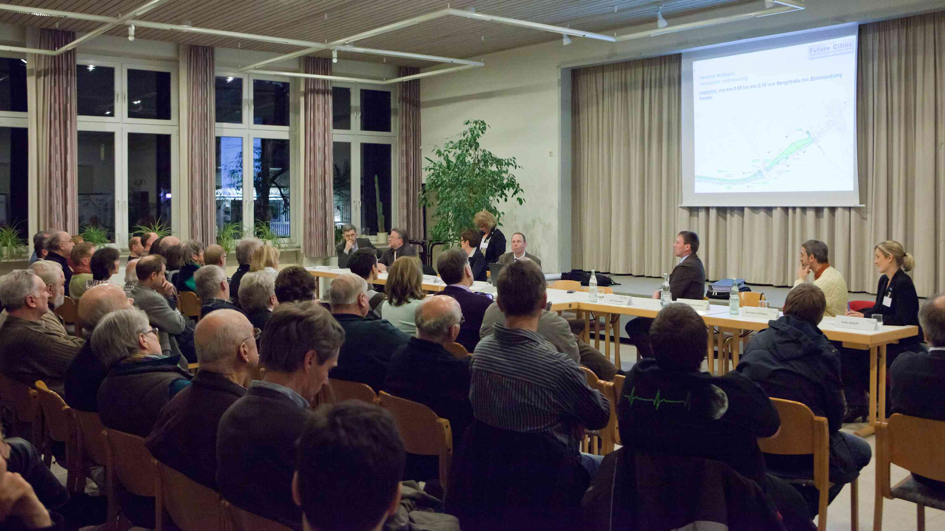Engaging private citizens to implement adaptation measures
Information evening in March 2011
Source: Lippeverband
Successful implementation of EbA sometimes necessitates the involvement and support of private actors in cases where the measures are to take place on their land. This can create a challenge as the process of convincing individual stakeholders to participate in implementation activities often requires significant time investments, financial resources, and public outreach efforts. In the case of Kamen, it was necessary to determine the value of decoupling private citizens’ rainwater from the sewage system and then to convey this information in a convincing manner to those involved. Two public information meetings were followed by one-on-one planning sessions in which a technician visited individual homes and drafted catered solutions for disconnection that met the needs of each citizen. Furthermore, financial incentives were provided to the residents in the form of expenses per decoupled square meter to motivate participation.
The project’s success can be credited to the participation and engagement of private citizens. Their support for decoupling rainwater from the sewage system emerged from a combination of several factors: outreach and awareness raising activities, public funding, voluntariness, provision of targeted and bilateral on-site expert advice, and a reduction in fees for disconnected households.
Given the high importance of citizen support and participation in the project, significant efforts and resources were invested in motivating participation. The approaches taken underscore the value of investing time in one-on-one sessions, in which information and arguments for participation are tailored to each stakeholder. As a consequence of these efforts, most of the property owners in the area were aware of the project of the need to adapt to climate change, and understood the value of their contribution as single actor. This has led the residents to be highly accepting of the implemented EbA measures and develop a sense of ownership, as well as to be open towards and even encourage the pursuit of further adaptation initiatives in the future in order to reach climate change adaptation goals and produce additional co-benefits for themselves and the environment.

